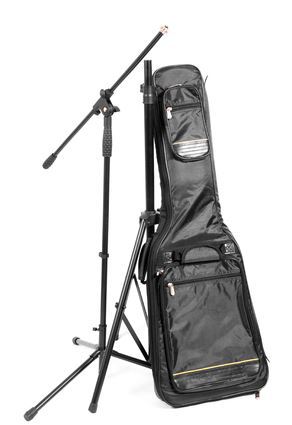Alaska Specialty Woods is known for supplying the finest instrument tonewood material for guitar tops. Guitars, in general, need to be treated like pets and babies– with tender, lovin’ care. Here are some tips for protecting your guitar from problems.
Guitars acclimate to their environment. Therefore, if you go from a really cold place to a really warm one, and vice versa, your guitar might get stressed out. Humidity also affects the instrument. Physical damage from extreme temperature variations can include warping and cracking. When wood gains moisture, it expands. When wood loses moisture, it shrinks. Ideally, you’ll want to keep your guitar in an area where the temperature is between 65 and 75 degrees with humidity in the 45 to 55 percent range. When that’s not possible, such as taking it on a plane where it’ll be stored underneath in a cold compartment, utilize a good hard case that protects the guitar from the cold.
It’s not unusual for guitar players to ask an airline to carry their guitar on the plane with them so it’s in the cabin rather than underneath, simply because they want to make sure it doesn’t freeze below and/or get tossed in the wrong way by some unassuming worker who doesn’t realize what he’s dealing with– a very expensive, beloved guitar!
Some people store their guitars in garages and/or leave them in vehicles overnight– but that’s not good if the temperature is freezing. It’s better to store them indoors. Keep in mind, however, that you don’t want to store guitars near heat vents indoors– that’s too hot and dry. Also, keep guitars out of direct sunlight because that can make the wood brittle and fade the color over time.
Every now and then, take time to change guitar strings on your instrument as well as clean it. Getting rid of dirt, grime and oil(s) is a good way to prolong the life of the instrument. Take the guitar to a professional cleaner for the best results.
Care for your guitar well and it’ll stay in good shape, sound great, and last a long time.
